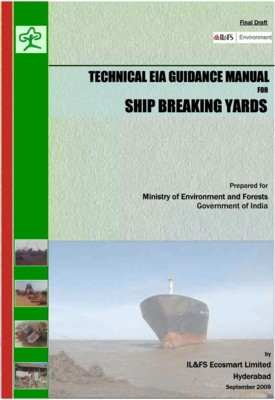/topics/wildlife
Wildlife
Small hydro: Too small for a national mission - The need for an assimilated national mission for renewable energy in India
Posted on 24 Feb, 2012 10:58 AM
Small hydropower plant (Source: Ministry of New and Renewable Energy)
Challenges for achieving conservation and development - A presentation by Elinor Ostrom at the Khoshoo memorial lecture, ATREE
Posted on 22 Feb, 2012 06:52 PM
Fellowship media briefing workshop : Tigers, tiger habitats and their conservation in India , CSE, April 25-26, New Delhi
Posted on 21 Feb, 2012 09:17 AMOrganizer: Centre for Science and Environment (CSE)

Description:
India hosts a majority of the world’s tiger population -- about 1,700 tigers, according to the May 2011 census. But a combination of threats is holding this meagre number to ransom, and poaching and trade in wildlife parts is just one of them. Shrinking habitat, conflicts with humans, growing tourist interference… the tiger has a lot to contend with. Policy intervention, protective legislations and international pressure have not made much of a difference, and if action is not taken effectively, the tiger will dwindle towards extinction.
Towards greener development: EIA sector specific manuals brought out by the Ministry of Environment and Forests
Posted on 19 Feb, 2012 07:20 PMThese manuals are aimed at expert appraisal committees, and hope to improve the quality of appraisal of projects. These will also provide a template for use by organisations and consultants developing the EIA reports.
Framework for valuing ecosystem services in the Himalayas - An ICIMOD technical report
Posted on 17 Feb, 2012 12:12 PMThis has been a generic first attempt that can be fine-tuned and customised for each type of ecosystem and each kind of service value. Ecosystem services are defined by the Millennium Ecosystem Assessment as ‘the benefits people obtain from ecosystems'.
Mountains occupy 24% of the global land surface area and are home to 12% of the world’s population. Mountains have an ecological, aesthetic, and socioeconomic significance, not only for those living in the mountain areas, but also for people living beyond them. However, the importance of ecosystem services arising from mountains is not properly recognised. The HKH region is endowed with a rich variety of gene pools and species, and ecosystems of global importance. It is a storehouse of biological diversity and a priority region in many global conservation agendas. The region has many unique ecosystems that play a critical role in protecting the environment and in providing livelihoods for much of Asia and beyond.
Marine fisheries in India - Issues, opportunities and transition for sustainable development - A World Bank working paper
Posted on 14 Feb, 2012 10:03 AMThis working paper by the World Bank presents the findings of a study that was conducted as a collaborative initiative by the World Bank and the Department of Animal Husbandry, Dairyin
Water quality monitoring of lakes in and around Bangalore city
Posted on 07 Feb, 2012 03:05 PMIt describes the efforts undertaken by the Karnataka State Pollution Control Board to launch a programme to monitor the water quality of some of the lakes in Bangalore so as to focus the attention of concerned governmental organisations to take up remedial measures to safe guard the water bodies of the "Garden City".
The sources of pollution in lakes are mainly identified as:
Mining poisons South Goa waters: The case of the Salaulim reservoir shown in a film
Posted on 04 Feb, 2012 05:05 PMContent and Media Courtesy: Video Volunteers
WWF India invites applications for Senior Programme Officer - CBD, Delhi - Apply by January 25, 2012
Posted on 28 Jan, 2012 10:15 AM
Description:
WWF India, one of the country’s largest conservation organizations is looking for an enthusiastic and motivated young individual to be part of its team in the Sustainable Livelihoods and Governance Programme, to work as a Senior Programme Officer on issues related to the Convention of Biological Diversity (CBD). The role of the incumbent will be to facilitate and execute the tasks leading to the eleventh Conference of Parties (COP 11), and undertaking activities to assess the impact of the Biodiversity Act and its rules on conservation and rural livelihoods. This will involve extensive secondary literature review, field level consultations and action research to collect and collate data, analyze and assess to develop policy briefs and documents for policy advocacy as well as help WWF’s participation in COP 11.
Saving some last remaining free flowing rivers
Posted on 24 Jan, 2012 06:38 AMGuest post by: Parineeta Dandekar





